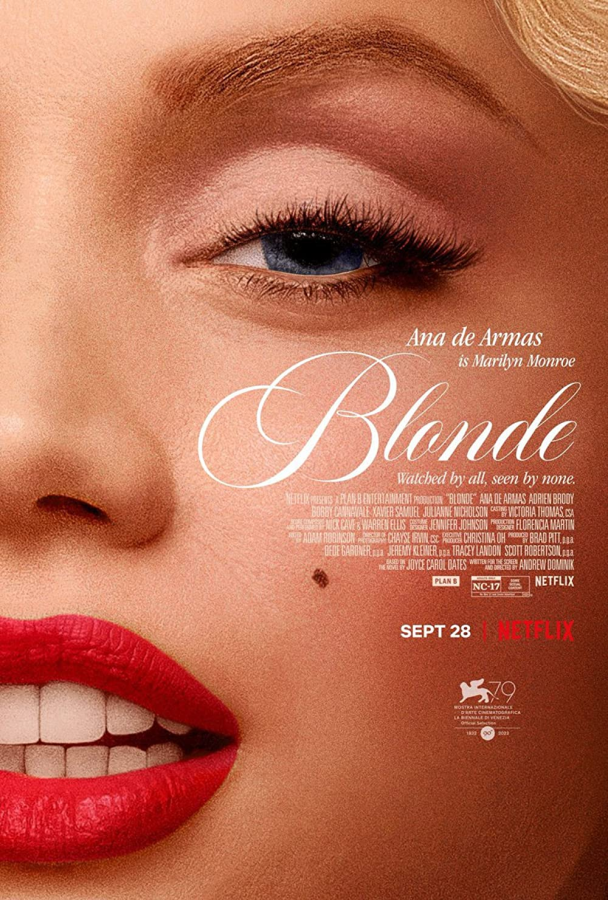“Blonde” and The Trouble With Fictionalizing Truth
Official movie poster for Blonde.
Released in October of 2022, “Blonde,” a Netflix film and account of the life of Marilyn Monroe, portrayed by Ana de Armas, divided viewers and critics alike. Based upon the Joyce Carol Oates novel by the same name, it follows the life of Norma Jeane Mortenson, later known as Marilyn Monroe, from her childhood in an L.A. orphanage to her death at thirty-six.
“Blonde” begins by painting a poignant picture of Mortenson’s difficult childhood. Her mother, Gladys, is committed to a mental hospital early in the film, leaving Mortenson in the care of an L.A. orphanage. The film then jumps to her early modeling and film career, where she adopts the stage name “Marilyn Monroe” and lands her first leading role in a movie, “Don’t Bother to Knock.” As Monroe’s film career explodes, her personal life and relationships grow more complicated, leading her down a difficult path of mental illness and drug use.
Though “Blonde” remains true to some aspects of Monroe’s life, it ultimately takes too many creative liberties in telling the story of the woman behind the name, substituting fact for titillation. The film condemns the exploitation of Monroe during her life but ends up ironically doing the same thing it condemned: using shocking and grotesque scenes to draw the audience in while failing to provide any deeper insight into Monroe’s personality. When it comes to delving into Monroe’s character, the film falls skin-deep, failing to portray her as anything else but another dumb, doomed blonde.
As biopics of the rich and famous have risen in popularity in recent years, “Blonde” reignites the debate of whether or not it is right to fictionalize the lives of real people — and if so, how far is it appropriate to take such creative liberties?
In the years since her death, Marilyn Monroe has become more remote to audiences, more known for brand deals in clothing and jewelry than her film career. “Blonde” misses out on its chance to reintroduce audiences to Monroe with its shallow depiction of her life and use of dramatic scenes that exist for mere shock value. Though “Blonde” had beautiful cinematography and superb acting, it lacked sympathy for its subject and strayed too far from fact to be considered a quality biopic. As Marilyn Monroe lived a fascinating and dynamic life, it is upsetting to see another attempt to tell her story fall flat on its face.












